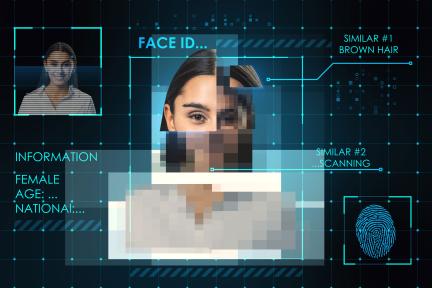Visions will NEVER ask for your personal or financial information via email or text message. But many scam artists will!
If you were tricked into giving out your confidential account information by a scammer, please call us immediately at 800.242.2120. You can also call this number if you gave out your Access Card/Debit Card/Credit Card information.
Phishing – emails
Email "phishing" scams target financial institutions. Most likely these scams send email to millions of people and may include some text and graphics from a website. They will ask you to provide personal information after following a link in the email. Be suspicious - the website may well be a fake created to get personal information from you.
Do not follow or click on any web link in an email message that appears suspicious. Visions will NEVER ask for any personal information such as username, password, or card information from a link within an email message.
Vishing – phone calls
Vishing is similar to phishing but uses telephone lines as the means to scam you. It uses technology to trick caller ID and other security systems. The caller will then try to get your credit card number or other personal information.
Smishing – text messages
Smishing uses text messages on your cell phone as the means to scam you. The smishing message usually contains something that wants your “immediate attention.” The text message may include a linked website URL or a phone number that connects to automated voice response system.
A popular example is, “(Name of a financial institution): Your account has been suspended. Call ###-###-#### immediately to reactivate.”
The “hook” will be a legitimate looking web site or telephone voice response system that asks you to “confirm” or enter your personal financial information, such as your credit/debit card number, CVV code (on the back of your credit card), your ATM card PIN, Social Security number, and other details like your Secure Access Code to digital banking.
Remember, Visions will never ask you to provide your Secure Access Code.
How do I know if a text message is legitimate?
Here's a list of authentic numbers used for Visions-related text messages and transaction verifications:
- 23618 – Debit/Credit Card transaction verification and fraud monitoring
- 86434 – Digital banking login and transaction verification
- 833.845.2800 – Zelle® transaction verification
- 83281 – Visions Loan Payments and reminders
If you’re ever unsure if a text message or phone call is legitimate, do not respond or click on anything. Instead, call 800.242.2120 to verify the information or visit your local branch.
Are you concerned about fraud or want to report a scam?
Please contact us if you believe you have received a suspicious email, text message, or phone call from Visions, or if you provided any of your personal information including your account number.
You may contact a representative in our Contact Center during normal business hours at 800.242.2120. If you'd like to report any card related fraud, please call 833.224.5785 (available 24/7).



